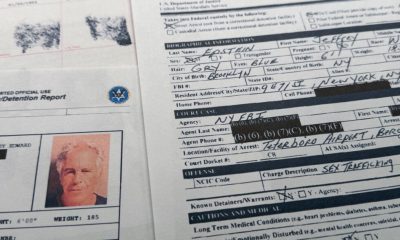Alpine skiing live streams at the 2026 Winter Olympics will see Austria attempt to continue their historic dominance of this event, with challenges expected from Switzerland and France.
Austria’s squad includes Marco Schwarz, Manu Feller and Julia Scheib, all of whom will be targeting a podium finish in their respective events. Marco Odermatt of Switzerland will be aiming to do his country proud after the recent tragic resort fire back home, while the USA are still waiting on the fitness of Lindsey Vonn. Other skiers worth watching are the veteran Italian Christof Innerhofer, and Italy’s Clement Noel, who won gold in the slalom in 2022.
Here’s where to stream alpine skiing live and watch Winter Olympics 2026 online from anywhere and potentially for FREE.
Watch Winter Olympics Alpine Skiing 2026 for FREE
Alpine Skiing at the 2026 Winter Olympics will be available to stream for free in a number of countries, including the UK, Ireland, Australia and Canada.
🇬🇧 UK: BBC iPlayer
🇨🇦 Canada: CBC Gem
🇦🇺 Australia: 9Now
🇮🇪 Ireland: RTÉ Player
Live in the US? You can access the NBC, USA Network and CNBC channels thanks to the 21-day trial for YouTube TV.
Abroad and want to watch alpine skiing? Norton VPN can help you watch your usual streaming service from anywhere.
How to watch any Winter Olympics Alpine Skiing stream using a VPN
How to watch Winter Olympics Alpine Skiing live streams in the US

In the US, Winter Olympics coverage is available through Peacock, NBC, USA Network and CNBC and that is no different for the alpine skiing event.
The Peacock streaming service should be your first port of call, as it’s showing every single event live. You need at least a Peacock Premium subscription for access, with the Peacock price starting at $10.99 per month or $109.99 per year.
Alternatively, NBC, USA Network and CNBC will carry select coverage of alping skiing and you can access them through cord-cutters like Sling TV or YouTube TV.
Outside the US during the Winter Olympics? Use Norton VPN to access your alpine skiing coverage.
How to watch Winter Olympics Alpine Skiing live streams in the UK

In the UK, alpine skiing coverage is shared between the BBC and TNT Sports via Discovery+.
One feed will run on BBC One or BBC Two, with live streaming available via BBC iPlayer, while a separate, digital-only feed will be available on iPlayer and the BBC Sport website.
Just bear in mind that the BBC’s free-to-air coverage won’t be all-encompassing and so may not cover every minute of the alpine skiing.
TNT Sports is providing comprehensive coverage. You can add the channels to your Sky, Virgin Media or EE TV package, or pay from £3.99 per month for Discovery+ which will be showing all the Winter Olympics action.
Traveling away from the UK during the alpine skiing event? Use a VPN to watch BBC iPlayer or Discovery+ from abroad while you’re away from home.
How to watch Winter Olympics Alpine Skiing live streams in Canada

In Canada, CBC has the rights to broadcast alpine skiing at the 2026 Winter Olympics.
You can watch select events on TV via free-to-air CBC Sports or, for much more extensive live and on-demand coverage of Milano Cortina 2026, head to its online CBC Gem streaming platform. More than 2,000 hours of action will be shown over the course of the Games, including every minute of the alpine skiing events.
If you aren’t in Canada for Milano Cortina, simply use a VPN to tune in from overseas.
How to watch Winter Olympics Alpine Skiing live streams in Australia

In Australia, the Winter Olympics are being shown on 9Now and Stan Sport.
9Now is home to select free-to-air Milano Cortina coverage, but not necessarily all of the alpine skiing.
For comprehensive coverage, you’ll need to subscribe to Stan Sport. It costs AU$20 a month on top of a regular Stan subscription, which itself starts at AU$12 a month.
Away from Australia right now? Use a VPN to watch your usual streams.
How to watch Winter Olympics Alpine Skiing live streams in New Zealand

In New Zealand, Sky Sport NZ is showing the alpine skiing.
You can access Sky Sport through satellite TV or get a live stream with the Sky Sport Now subscription service, starting at $29.99 per day or $54.99 per month.
Missing the alpine skiing due to commitments overseas? Norton VPN will give you access to your home streaming service.
Winter Olympics Alpine Skiing FAQs
What is the Winter Olympics Alpine Skiing schedule 2026?
(All times CET)
Saturday, February 7
11.30am – Men’s downhill
Sunday, February 8
11.30am – Women’s downhill
Monday, February 9
10.30am, 2pm – Men’s team combined
Tuesday, February 10
10.30am, 2pm – Women’s team combined
Wednesday, February 11
11.30m – Men’s super-G
Thursday, February 12
11.30m – Women’s super-G
Saturday, February 14
10am, 1.30pm – Men’s giant slalom
Sunday, February 15
10am, 1.30pm – Women’s giant slalom
Monday, February 16
10am, 1.30pm – Men’s slalom
Wednesday, February 18
10am, 1.30pm – Women’s slalom
Can I watch Winter Olympics Alpine Skiing on my mobile?
Of course, most broadcasters have streaming services that you can access through mobile apps or via your phone’s browser – for example, Peacock, BBC iPlayer and CBC Gem all have mobile apps.
You can also stay up-to-date with all things Autumn Nations on the official social media channels on X (@MilanoCortina2026), YouTube (@Olympics) and Instagram (@milanocortina2026).
We test and review VPN services in the context of legal recreational uses. For example: 1. Accessing a service from another country (subject to the terms and conditions of that service). 2. Protecting your online security and strengthening your online privacy when abroad. We do not support or condone the illegal or malicious use of VPN services. Consuming pirated content that is paid-for is neither endorsed nor approved by Future Publishing.

































































